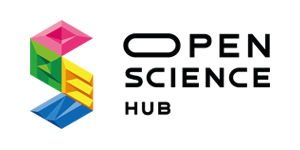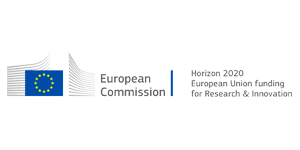Co-create open schooling projects to tackle local-to-global challenges
This workshop follows the panel A New Digital Deal for Transnational Collaboration and is facilitated by the Open Science Hub Network team, a consortium of nine European partners funded by the European Commission H2020 Program, that supports and engages schools and local stakeholders to use research and innovation as tools to tackle local challenges and contribute to sustainable community development.
Local OSHubs work as mediators in each local community, positioning schools as active agents for collaboration between families, universities, research institutes, industry, local governments, civil society organizations and wider society, by engaging in real-life projects that meet societal needs. OSHubs are being established in communities that traditionally do not engage with research and innovation due to various barriers – geographical location, socio-economic status, or ethnic minority group background, aiming to overcome barriers and building bridges across Europe.
We would like to invite you for a co-creation session, where we will design and develop together education strategies and actions, based on research and innovation, to tackle common issues in different parts of the globe, by taking advantage of the realm of opportunities – and challenges – that the digital world has to offer. By using as a setting a virtual card game based on the Full Stack Fab City tool developed by Fab Lab Barcelona and working in small teams, each facilitated by an open schooling partner and an educator, we will be embark on an international open schooling mission where each team will need to go through different steps, questions and self-evaluation in order to design the most collaborative strategy to tackle a local-to-global challenge.
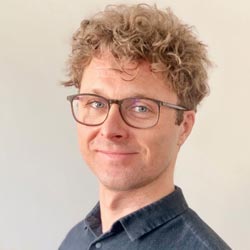 Andrew Newman (AU/AT): Andrew Newman is a producer for the European Platform for Digital Humanism at Ars Electronica in Linz and is focused on fostering cultures of transdisciplinary innovation. He is responsible for projects aimed at bringing artists and scientists together (STUDIOTOPIA) and creating STEAM learning experiences (Open Science Hub, Creative School and STEAM INC). He co-founded the Research Institute for Arts and Technology in Vienna where he focused on integrating artistic research methodologies into blockchain and open hardware research and development.
Andrew Newman (AU/AT): Andrew Newman is a producer for the European Platform for Digital Humanism at Ars Electronica in Linz and is focused on fostering cultures of transdisciplinary innovation. He is responsible for projects aimed at bringing artists and scientists together (STUDIOTOPIA) and creating STEAM learning experiences (Open Science Hub, Creative School and STEAM INC). He co-founded the Research Institute for Arts and Technology in Vienna where he focused on integrating artistic research methodologies into blockchain and open hardware research and development.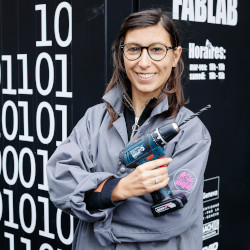 Cristina Olivotto, a physicist by training, started to work in the field of science communication and formal and informal science education during her PhD at the University of Milan, Italy. She has extensive experience in working in international contexts and with European organisations, including the European Space Agency where she worked in the educational team for five years. In Leiden, the Netherlands she worked for Sterrenlab – the company that she founded – to organise science camps and activities for children and teenagers. In 2016 she co-founded the first Fab Lab in Geneva, Switzerland Onl’Fait, where she is currently employed as Fab Lab manager. She is involved in all the Onl’fait activities related to youngsters, schools and professional reintegration.
Cristina Olivotto, a physicist by training, started to work in the field of science communication and formal and informal science education during her PhD at the University of Milan, Italy. She has extensive experience in working in international contexts and with European organisations, including the European Space Agency where she worked in the educational team for five years. In Leiden, the Netherlands she worked for Sterrenlab – the company that she founded – to organise science camps and activities for children and teenagers. In 2016 she co-founded the first Fab Lab in Geneva, Switzerland Onl’Fait, where she is currently employed as Fab Lab manager. She is involved in all the Onl’fait activities related to youngsters, schools and professional reintegration.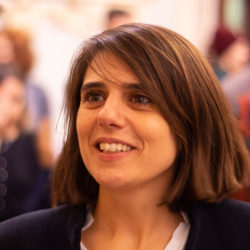 Maria Vicente is the international Project Manager of the H2020 Open Science Hub project (opensciencehub.net), at Leiden University, that comprises nine European partners. Maria holds a PhD in Neuroscience and was responsible for the Science Education programme at the Champalimaud Centre for the Unknown, Lisbon, Portugal. Since 2017, she has also been the Scientific Coordinator of Plataforma de Ciência Aberta (plataforma.edu.pt), a social innovation program of the Municipality of Figueira de Castelo Rodrigo, Portugal, aimed at bringing together research and innovation with the daily-life of local communities, as tools to tackle local relevant challenges.
Maria Vicente is the international Project Manager of the H2020 Open Science Hub project (opensciencehub.net), at Leiden University, that comprises nine European partners. Maria holds a PhD in Neuroscience and was responsible for the Science Education programme at the Champalimaud Centre for the Unknown, Lisbon, Portugal. Since 2017, she has also been the Scientific Coordinator of Plataforma de Ciência Aberta (plataforma.edu.pt), a social innovation program of the Municipality of Figueira de Castelo Rodrigo, Portugal, aimed at bringing together research and innovation with the daily-life of local communities, as tools to tackle local relevant challenges.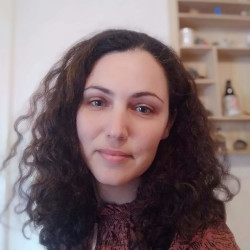 Pandora Sifnioti is a Chemical Engineer with a Master’s in “Education in Chemistry – Novel Teaching Technologies” and has a strong scientific and technical background. She has worked as a pedagogical leader for the IB Primary Years Programme (IB PYP Coordinator) and has five years of experience as a STEM coordinator at CGS (20014-2019), a major private school in Greece, with the responsibility to design and implement a STEM programme across all ages (3 to 18 years old). She has additional experience in Research & Development at Procter&Gamble, Brussels, for leading consumer products, such as Ariel laundry detergents and Pringles (2006-2009). She has also worked at the Federation of Greek Enterprises on policy development for the promotion of innovation and growth within enterprises and industries. She has an active profile in charity work, in support of people and animals in need and a strong focus on philosophy of ethics and its link to value education. In December 2019 she joined SciCo as STEM Director.
Pandora Sifnioti is a Chemical Engineer with a Master’s in “Education in Chemistry – Novel Teaching Technologies” and has a strong scientific and technical background. She has worked as a pedagogical leader for the IB Primary Years Programme (IB PYP Coordinator) and has five years of experience as a STEM coordinator at CGS (20014-2019), a major private school in Greece, with the responsibility to design and implement a STEM programme across all ages (3 to 18 years old). She has additional experience in Research & Development at Procter&Gamble, Brussels, for leading consumer products, such as Ariel laundry detergents and Pringles (2006-2009). She has also worked at the Federation of Greek Enterprises on policy development for the promotion of innovation and growth within enterprises and industries. She has an active profile in charity work, in support of people and animals in need and a strong focus on philosophy of ethics and its link to value education. In December 2019 she joined SciCo as STEM Director.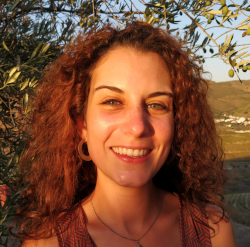 Inês Saavedra has masters in Physics and in Adult Education & Community Intervention. She worked as a sociocultural mediator, having promoted STEAM and other educational activities with children and youngsters from vulnerable socio-economic contexts. Since January 2021, she has been a project manager at the Plataforma de Ciência Aberta, where she is responsible for the co-coordination of the portuguese strategy of Open Schooling, within the scope of the H2020 Open Science Hub project.
Inês Saavedra has masters in Physics and in Adult Education & Community Intervention. She worked as a sociocultural mediator, having promoted STEAM and other educational activities with children and youngsters from vulnerable socio-economic contexts. Since January 2021, she has been a project manager at the Plataforma de Ciência Aberta, where she is responsible for the co-coordination of the portuguese strategy of Open Schooling, within the scope of the H2020 Open Science Hub project.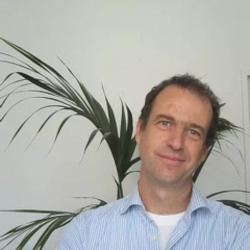 Matteo Merzagora is the director of TRACES, an association based in Paris whose mission is to transform science culture and public engagement activities into instruments for citizen participation and social inclusion. Trained as a physicist, he worked as science journalist in Italy (RAI, Radio popolare, Il Sole 24 ore), museologist and science communicator in France (Espace des Sciences Pierre Gilles de Gennes – ESPCI Paris PSL, Universcience,…), lecturer in science communication and project manager in Europe (SISSA, Université de Paris, SWAFS projects …). Together with Claudia Aguirre, Malvina Artheau and Didier Laval he is in charge of developing a methodology to apply Living lab approaches to open schooling within the ongoing #OStogether project « SALL – Schools as Living Lab”.
Matteo Merzagora is the director of TRACES, an association based in Paris whose mission is to transform science culture and public engagement activities into instruments for citizen participation and social inclusion. Trained as a physicist, he worked as science journalist in Italy (RAI, Radio popolare, Il Sole 24 ore), museologist and science communicator in France (Espace des Sciences Pierre Gilles de Gennes – ESPCI Paris PSL, Universcience,…), lecturer in science communication and project manager in Europe (SISSA, Université de Paris, SWAFS projects …). Together with Claudia Aguirre, Malvina Artheau and Didier Laval he is in charge of developing a methodology to apply Living lab approaches to open schooling within the ongoing #OStogether project « SALL – Schools as Living Lab”.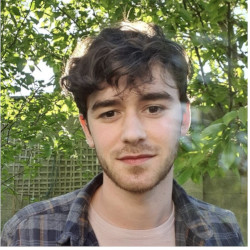 Shaun Ussher works for Science Gallery Dublin as the Learning and Engagement Researcher. From working in the exhibition production and communication, he now works with research and learning, investigating non-formal science and art educational programs. With a background in neuroscience Shaun’s research interests are centred on behaviour, cognition and the experience of interacting in a culture space, which he hope to develop further in the future.
Shaun Ussher works for Science Gallery Dublin as the Learning and Engagement Researcher. From working in the exhibition production and communication, he now works with research and learning, investigating non-formal science and art educational programs. With a background in neuroscience Shaun’s research interests are centred on behaviour, cognition and the experience of interacting in a culture space, which he hope to develop further in the future.Credits
create your world TOUR is part of the OSHub project that has received funding from the European Union’s Horizon 2020 Framework Programme for Research and Innovation under grant agreement No. 824581

